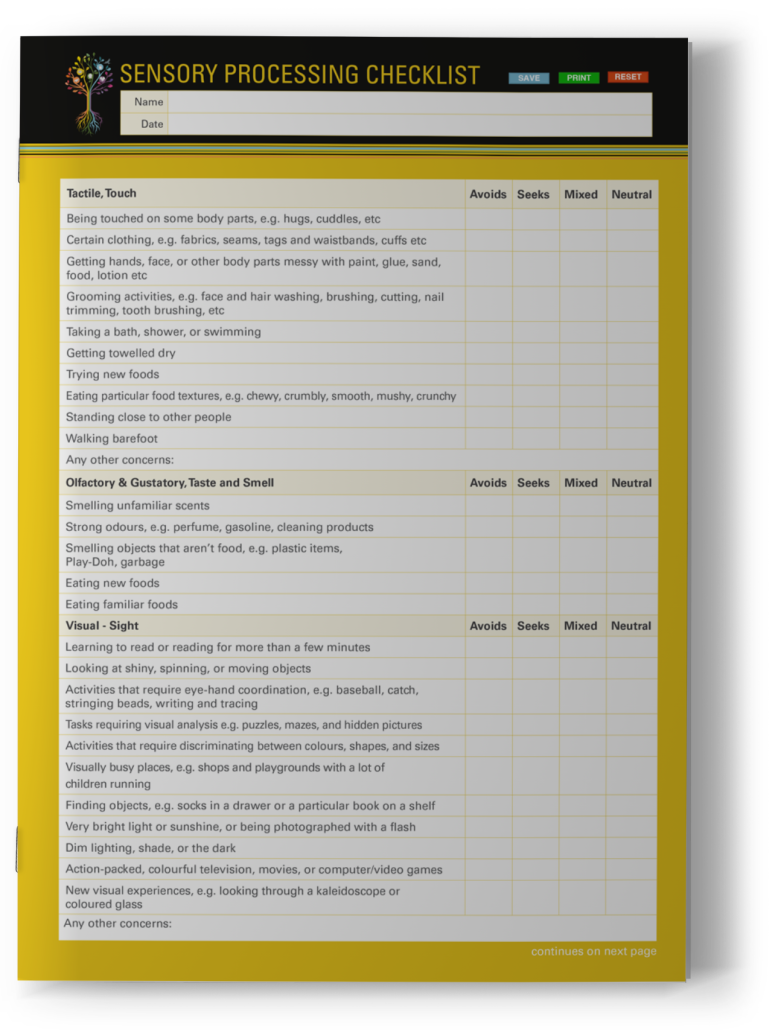Sensory Processing Checklist
The Sensory Processing Checklist is used as an assessment tool to identify the areas of concern for teachers/LST.
This checklist will begin to identify what type of sensory processing issues the student may have. You will then need to draw on your existing knowledge of the student, information from parents/carers, or do further observations to identify which of the following categories their sensory processing difficulties fall into.
Interpreting the Sensory Processing Checklist
Oversensitivity
A child who is over-sensitive may respond to stimulation in one of two ways in an attempt to cope with the information.
Sensory Sensitivity
These children notice everything in their environment and are constantly reacting to sensory experiences. They are often:
- Easily distracted
- Hyperactive
Sensory Avoiding
These children avoid sensory stimulation. Too much sensory input can be uncomfortable and frightening for these children. Their behaviour can be disruptive as they are:
- Rule bound
- May seem controlling or stubborn
- Throw tantrums to avoid activities
- Strongly resist change
- Withdraw from activities
- Are uncooperative
Under-sensitivity
A child who is under-sensitive may respond to stimulation in one of two ways in an attempt to cope with the information.
Sensory Seeking
These children notice and enjoy all activities in their environment and they like to generate extra sensory input for themselves so they will feel stimulated. Sensation seeking can be difficult in the classroom as a child’s seeking can easily distract them from participating in the task at hand. These children are:
- Fidgety
- Active
- Excitable
- Continuously engaging in new things
Low Registration
These children notice sensory stimuli much less than others. They do not notice what is going on around them, and miss cues that might guide their behaviours. These children often seem:
- Dull in affect
- Withdrawn
- Uninterested
- Self-absorbed
Referral to an Occupational Therapist
If a student has significant sensory processing issues, or difficulty in a number of areas, discuss with parents/carers the possibility of consulting with an Occupational Therapist.
Sensory processing issues should only be diagnosed by a qualified professional. Some behaviors that appear to be related to sensory issues are actually behavioral issues independent of sensory needs.
Sensory Processing Checklist
Click here to fill in the Sensory Processing Checklist


